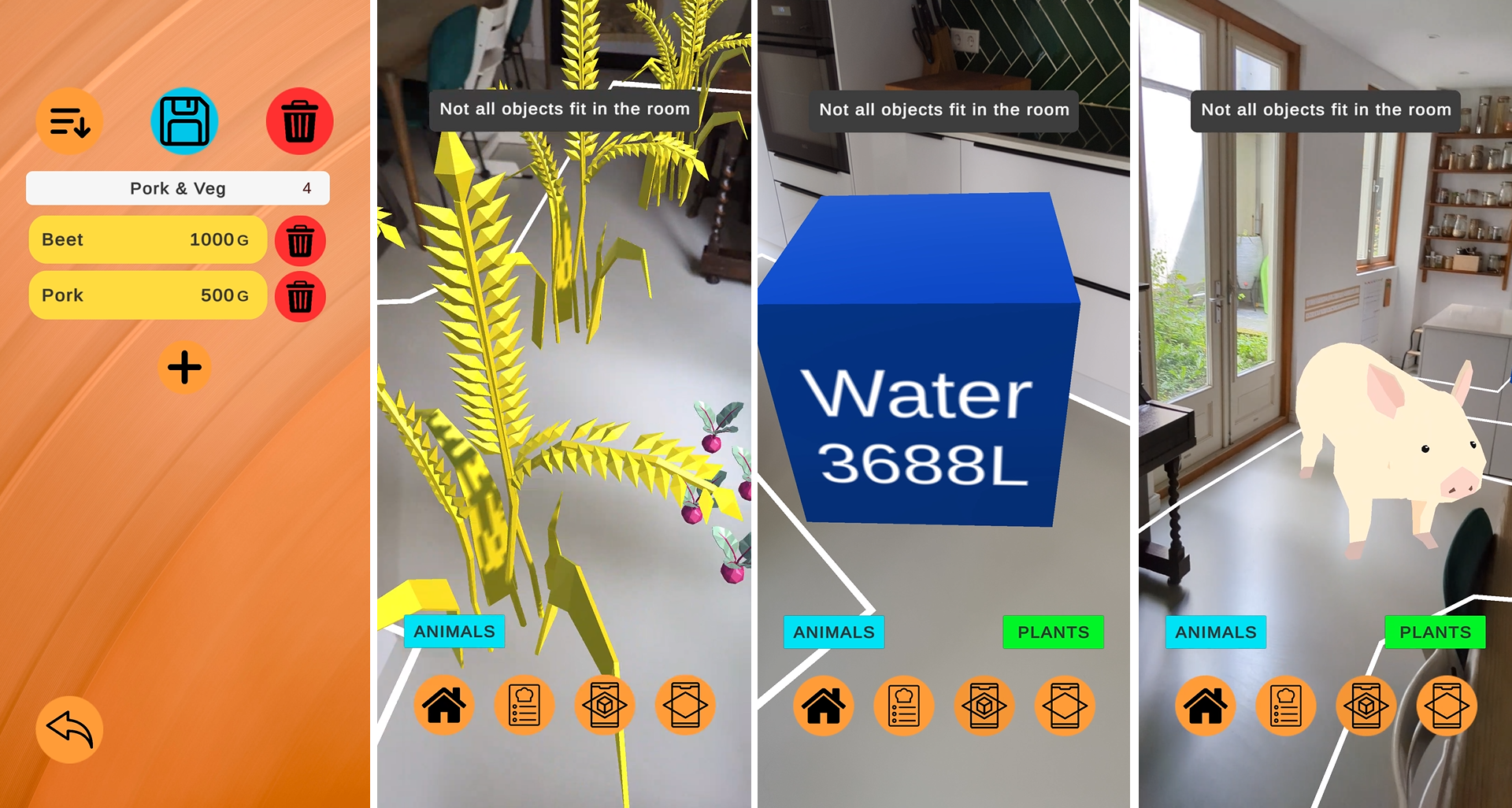AwARe: Using handheld augmented reality for researching the potential of food resource information visualization
Nina Rosa - Wageningen University and Research, Wageningen, Netherlands
Screen-reader Accessible PDF
Download preprint PDF
Room: Esplanade Suites I + II + III
2024-10-14T12:30:00ZGMT-0600Change your timezone on the schedule page
2024-10-14T12:30:00Z

Abstract
Consumers have the potential to play a large role in mitigating the climate crisis by taking on more pro-environmental behavior, for example by making more sustainable food choices. However, while environmental awareness is common among consumers, it is not always clear what the current impact of one's own food choices are, and consequently it is not always clear how or why their own behavior must change, or how important the change is. Immersive technologies have been shown to aid in these aspects. In this paper, we bring food production into the home by means of handheld augmented reality. Using the current prototype, users can input which ingredients are in their meal on their smartphone, and after making a 3D scan of their kitchen, plants, livestock, feed, and water required for all are visualized in front of them. In this paper, we describe the design of the current prototype and, by analyzing the current state of research on virtual and augmented reality for sustainability research, we describe in which ways the application could be extended in terms of data, models, and interaction, to investigate the most prominent issues within environmental sustainability communications research.